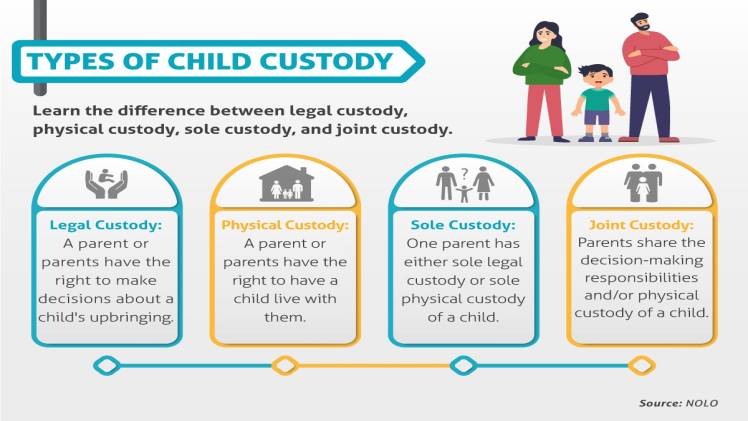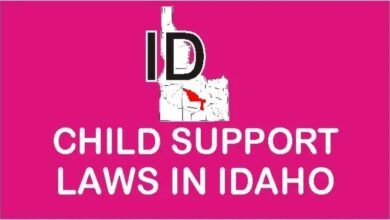Types of Child Custody Following a Divorce

The laws regarding child custody following a divorce are governed by the state government rather than the federal government. Every 50 states look after its norms and are somewhat similar to each other, except for minor amendments.
The custody of a child after a divorce is decided by considering the child’s best interests, and the court is highly rational. Both parents are seen as equal in the eyes of the law, and none gets the leverage of what gender the parent is or the bond you share with the child.
Different parameters are taken into account when deciding the custody of a child, and based on that, the type of custody is decided. There are namely two types of child custodians first shared custody, also known as joint custody, and sole custody. If you wish to learn more about these custodians and their nooks and crannies, then continue reading the post.
Joint Custody.
Joint Custody is when both parents have the right to decide in favor of the child. This type of custody is broken down into two parts- Joint Legal Custody and Joint Physical Custody. Firstly, Joint Legal Custody is when both parents have equal rights in making major decisions for the child. This includes deciding based on what education the child must persuade, what health care benefits or treatments the child must get, what religion the child must follow, and what extracurricular activities the child must participate in.
Secondly, Joint Physical Custody decides how much time each parent will spend with the child. The court usually allocates this time and is equally distributed 95% of the time. For instance, if parent A gets to spend time with the child for three days, then parent B will also get three days to spend with the child. Here cooperation between the parents is highly demanded in smooth cycles, and the parent must live in close vicinity for ease of travel.
Solo Custody.
Solo Custody, on the other hand, is different from what we discussed earlier. In solo custody, only one single parent is entitled to spend time and live with the child and make their major decision regarding education, health, etc. The other parent will be allowed time to spend with the child for a limited period, called visitation time.
There can be exceptions that the court can make regarding each of the custody based on the circumstance and the parent’s condition. Furthermore, each state will have different laws governing the custody of the child, so it is best suggested that you hire a lawyer that is experienced with child custody cases as they would be the ones that would provide minor details.





